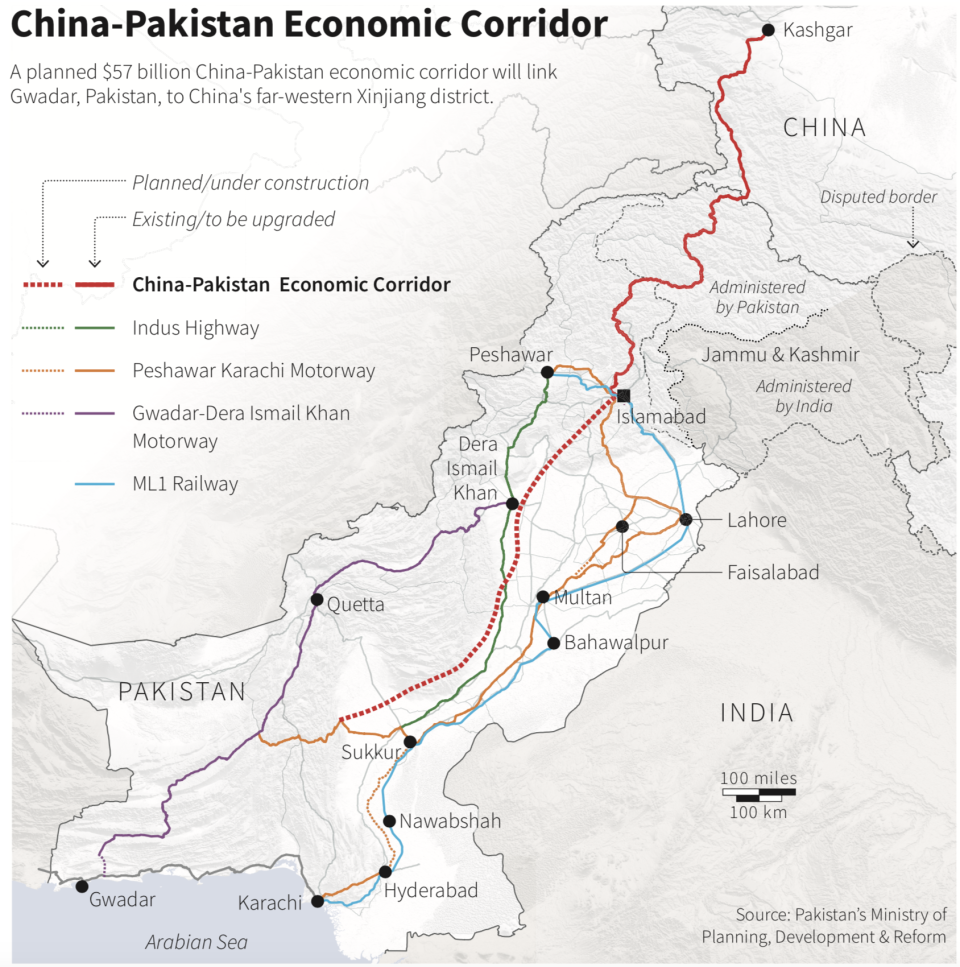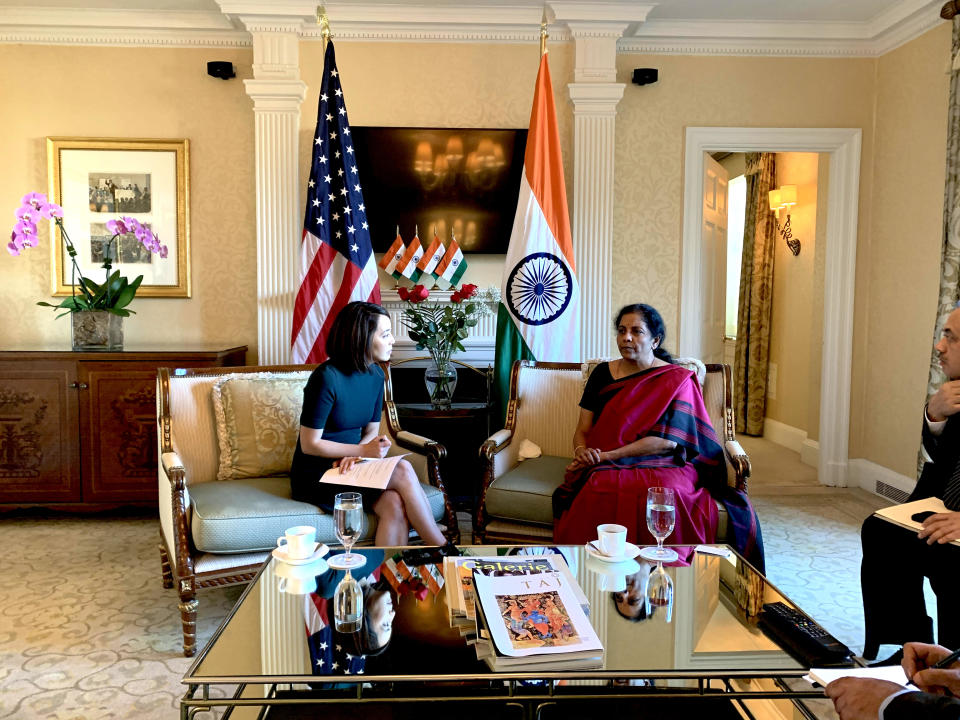India's finance minister: ‘We made our position very clear’ on China's new Silk Road
As China continues to court more countries to join its massive Belt and Road Initiative (BRI), India has made its position “very clear” that it won’t be participating because of a territorial dispute, Indian Finance Minister Nirmala Sitharaman told Yahoo Finance.
Indian neighbors Nepal and Pakistan recently deepened their relationships with China by signing on to the country’s massive trillion-dollar infrastructure plan dubbed the new Silk Road.
But BRI has been a thorn on India’s side. China has been courting partnerships with several of India’s neighbors — from Maldives to Bangladesh. And India has taken offense at one specific project in particular: The China Pakistan Economic Corridor (CPEC).
The CPEC is a $60 billion infrastructure program that China launched as part of the BRI that’s supposed to link China’s Xinjiang region to Pakitan’s Gwadar port.

India has opposed the project as it’s being built through the disputed territory in Gilgit-Baltistan, in Pakistan-administered Kashmir.
“We made our position very clear that we may not be able to participate in the Belt and Road initiative,” India’s Sitharaman told Yahoo Finance in an interview in New York City. “Only because, at least in some parts it's passing through what is essentially our territory, which is under illegal occupation [by] Pakistan, which is the CPEC, which is a crucial part of the Belt and Road initiative itself.”

Countries take on the BRI
Modi has responded to China’s advances in the region with what the Indian government calls a “neighborhood first” foreign policy centered around several of those countries.
And Modi is not alone. Countries outside of South Asia are also concerned about China’s BRI and have launched various programs to address their concerns, which revolve around whether China is engaging in debt-trap diplomacy or creating opportunities for corruption.
In the U.S., Congress recently passed a bill that created a new U.S. development agency — the U.S. International Development Finance Corporation — that aims to offer what D.C.-based think tank CSIS calls a “private sector, market-based solution” to state-to-state lending issues that arise with China’s BRI.
The European Union and Japan have also signed a deal to build infrastructure projects around the world, covering sectors from transport to digital industries, aimed at countering the BRI.
In the meantime, the Chinese economy is slowing down — which has caused BRI spending to slow down. China’s GDP growth dropping last quarter to the lowest in nearly three decades.
—
Akiko Fujita is an anchor and reporter for Yahoo Finance. Follow her on Twitter.
Aarthi is a writer for Yahoo Finance. Follow her on Twitter @aarthiswami.
Read more:
China's foreign minister: China has no intention to 'play the game of thrones'
India's Sitharaman: US trade pact a 'good possibility,' should come soon
US, India talks are 'hot and tense' amid hopes for a trade deal
'This is just the beginning': India PM Modi makes a passionate pitch to investors
Read the latest financial and business news from Yahoo Finance
Follow Yahoo Finance on Twitter, Facebook, Instagram, Flipboard, SmartNews, LinkedIn, YouTube, and reddit.